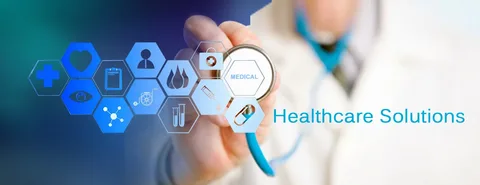Multi-Techno Integrated Solution

Table of Contents
ToggleIntroduction
In recent years, the healthcare industry has recognized the need for efficient management systems to streamline operations and improve patient care. Enterprise Resource Planning (ERP) solutions have emerged as powerful tools to meet these demands. This article delves into the various modules and uses of ERP Solutions For Healthcare, highlighting the benefits they bring to the industry.
I. Understanding ERP Solutions for Healthcare
ERP solutions for healthcare are comprehensive software systems that integrate various functions and departments within a healthcare organization. These systems provide a centralized platform for managing and automating critical processes, such as patient information, financials, inventory, human resources, and more. The modular structure of ERP solutions enables customization and scalability to suit the specific needs of healthcare providers.
II. Key Modules of ERP for Healthcare
1. Patient Management: The patient management module facilitates the seamless handling of patient information, including registration, scheduling, medical history, billing, and appointment management. It ensures easy access to patient records, improves communication among healthcare providers, and enhances overall patient care.
2. Clinical Documentation: This module digitizes patient records, including medical history, diagnoses, prescriptions, and test results. It enables physicians and healthcare professionals to access accurate and up-to-date information, leading to better diagnoses, treatment plans, and coordinated care.
3. Financial Management: ERP solutions for healthcare offer robust financial management modules that encompass accounting, billing, invoicing, and revenue cycle management. These modules streamline financial processes, facilitate accurate billing and claims management, and enhance financial transparency and compliance.
4. Inventory Management: Efficient inventory management is vital in healthcare settings. ERP solutions automate inventory tracking, purchase orders, stock replenishment, and vendor management. This ensures adequate supplies, minimizes waste, and optimizes resource allocation, ultimately reducing costs and improving patient care.
5. Human Resources: The human resources module handles various HR functions, including employee records, payroll, attendance tracking, and performance management. ERP solutions enable healthcare organizations to efficiently manage their workforce, ensuring optimal staffing levels, employee satisfaction, and compliance with labor regulations.
6. Analytics and Reporting: ERP Solutions in healthcare incorporate advanced analytics and reporting capabilities. These modules provide valuable insights into key performance indicators, patient outcomes, financial trends, and operational efficiency. Data-driven decision-making enables healthcare providers to identify areas for improvement, optimize resource allocation, and enhance patient care.
III. Uses and Benefits of ERP Solutions in Healthcare
1. Streamlined Operations: ERP solutions streamline healthcare operations by automating processes, reducing manual paperwork, and improving data accuracy. This efficiency saves time, reduces errors, and allows healthcare professionals to focus more on patient care.
2. Enhanced Patient Care: With ERP solutions, healthcare providers can access real-time patient data, enabling better diagnoses, treatment planning, and coordinated care across departments. This leads to improved patient outcomes, reduced medical errors, and increased patient satisfaction.
3. Cost Reduction: By optimizing inventory management, streamlining financial processes, and automating various administrative tasks, ERP solutions help healthcare organizations reduce costs. This cost-effectiveness allows for more efficient resource allocation and investment in quality patient care.
4. Improved Compliance: ERP solutions ensure compliance with healthcare regulations and industry standards by centralizing data, enabling better tracking, and facilitating accurate reporting. This helps healthcare organizations avoid penalties, ensure data security, and maintain patient confidentiality.
5. Data-driven Decision Making: The analytics and reporting capabilities of ERP solutions provide healthcare administrators with valuable insights. By analyzing key performance indicators, trends, and patient outcomes, organizations can make data-driven decisions to improve processes, allocate resources effectively, and enhance overall performance.
Conclusion:
In an era where efficient management systems are crucial for healthcare organizations, ERP solutions have emerged as indispensable tools. The various modules within ERP solutions cater to the specific needs of the healthcare industry, promoting streamlined operations, improved patient care, cost reduction, compliance, and data-driven decision-making. By implementing ERP solutions, healthcare providers can enhance efficiency, optimize resource utilization, and ultimately improve patient outcomes.
About Us
ERP software and systems are designed and implemented by Multi-Techno, a registered company. By combining data from financials, sales, CRM, inventories, and operations, businesses can increase productivity, make better decisions, and increase profitability with the aid of our ERP System, a single, integrated software platform.
Quick Links
Contact Us
Office # 100, 101 Second Floor Kohinoor 1, Faisalabad, Pakistan
